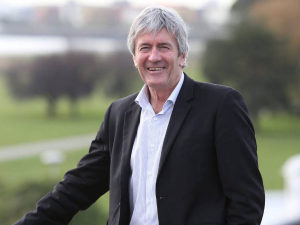Disunity is death
OPINION: Staying with politics, with less than nine months to go before the general elections, there’s confusion in the Labour Party when it comes to working with the divided Maori Party.
 Agriculture Minister Damien O’Connor is happy to have picked up additional portfolios of trade and export growth.
Agriculture Minister Damien O’Connor is happy to have picked up additional portfolios of trade and export growth.
Damien O’Connor has been put in a unique position in the Labour Government’s new cabinet line-up announced last week.
As well as retaining his role as Minister of Agriculture, he’s been handed the Trade and Export Growth portfolio previously held by David Parker. In that sense, O’Connor has control over the primary sector from paddock to plate. Dairy News is unaware that this has ever happened before in the modern political era.
O’Connor told Dairy News that he is very excited, happy and humbled to be given the opportunity to contribute positively in these two crucial areas of the New Zealand economy and says the two portfolios are interrelated.
“We are a nation of food and fibre producers and 95% of our efforts all have to go offshore so that we can survive. There are too few of us to consume the production that we generate and we have to knock on doors and ask governments to allow their people to buy our products,” he says.
O’Connor believes there is a growing recognition across the primary sectors that ultimately consumers drive the success of NZ primary producers. He says he takes up his new roles at a time when, worldwide, there are a lot of protectionist views being expressed.
“But because of Covid there is also a growing awareness of food security and the interdependence between the trade of food between countries and the production of food within them,” he says.
O’Connor says now that overseas travel is restricted by Covid, he and other trade ministers around the world are going to have to learn how to develop relationships using new technologies such as Zoom. He says it won’t be easy, but NZ has just got to continue to battle hard and get its message across that historically we are honest brokers, treat people as equals and are good trading partners.
While O’Connor is firmly in charge of the overall primary sector in the new cabinet, there are a number of other portfolios that relate to the primary sector. This includes David Parker who remains in the somewhat controversial role as Minister for the Environment. Willie Jackson takes over from Nania Mahuta as the Minister of Maori Development, meaning he will have a significant role in shaping Maori development in the primary sector through Te Puni Kokiri and Te Tumu Paeroa. Stuart Nash has Forestry, Ayesha Verrall is Minister of Food Safety and Kiri Allan is Minister of Conservation.
O’Connor has two ministers outside cabinet who will assist him. Phil Twyford is Minister of State for Trade and Export and Meka Whaitiri makes a comeback with the role of Associate Minister for Agriculture with responsibility for animal welfare.
The 5+ A Day Charitable Trust has launched a collection of affordable recipes designed to turn everyday vegetables into seasonal stars.
Jane Mellsopp has been confirmed as the new Government Appointee to the New Zealand Meat Board (NZMB).
To celebrate the tenth anniversary of its annual Good Deeds competition, Rabobank will give away $100,000 to improve rural community hubs, schools, clubrooms, and marae across New Zealand.
Agricultural and veterinary product supplier Shoof International has appointed Michaela Dumper as its new chief executive.
Federated Farmers is celebrating following the Government's announcement that young farmers will be able to use their KiwiSaver funds to buy their first home or farm.
The Meat Industry Association of New Zealand (MIA) today announced that Chief Executive Officer Sirma Karapeeva has resigned from the role.
OPINION: Staying with politics, with less than nine months to go before the general elections, there’s confusion in the Labour…
OPINION: Winston Peters' tirade against the free trade deal stitched with India may not be all political posturing by the…